Britishvolt has announced a joint venture with strategic partner Glencore to build a battery recycling ecosystem in the UK.
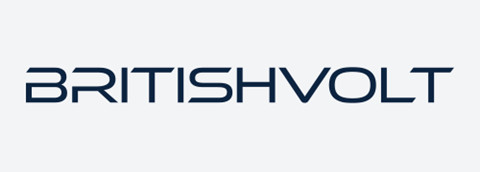
This ecosystem will be based in a recycling plant located at the Britannia Refined Metals (BRM) operation in Northfleet, a Glencore company.
Glencore, an Anglo-Swiss mining giant, is also teaming up with the British battery-maker to source essential materials for EV batteries.
the The project a marks return to recycling for BRM and aims to support creating a circular economy that supplies recycled materials and minerals back into the battery supply chain.
Once complete, the plant will be Glencore and Britishvolt’s first UK battery recycling facility with an expected annual processing capacity of a minimum of 10,000 tonnes of lithium-ion batteries, including valuable battery manufacturing scrap, portable electronics batteries and full EV packs. The facility will process all Britishvolt’s valuable battery manufacturing scrap from their Gigafactory in Blyth.
The facility is expected to be up and running by mid-2023, with the long-term aim of being 100% powered by renewable energy.
The JV will utilise Glencore’s multi-decade recycling experience across end-of-life materials such as discarded electronics, copper and alloy scraps and black mass. Both companies have said that battery recycling will be a vital part of the energy transition by recovering the critical metals needed for the energy transition.
According to Timon Orlob, global chief operating officer of Britishvolt, Glencore will supply Britishvolt with responsibly-sourced cobalt, which will be sourced from Norway and the Democratic Republic of Congo.
“We believe the opportunity to utilise BRM’s operations as a cutting-edge battery recycling facility will help support the development of a UK battery recycling industry,” said David Brocas, Head Cobalt Trader at Glencore.
“It will also play a part in furthering the UK’s climate ambitions as well as Glencore’s as we work towards net zero total emissions by 2050,” he added.
The partnership also aims to research how to make the recycling of EV batteries easier and more cost-effective, maximising their supply chain value and influencing legislation, including increasing regulation of recycling and ESG requirements.
This follows the UK government’s announcement in January that it would support Britishvolt with funding through the Automotive Transformation Fund. The subsidy allowed long-term partners Tritax and abrdn to deliver £1.7 billion in private financing to construct the shell and core of the UK battery maker’s Gigaplant in Northumberland.
A cleaner production process
Re-processing scrap from UK gigafactories could generate up to 20,000 tonnes of cathode active material (CAM) that can be reused, according to a statement from Britishvolt. The recycled material is capable of making 7GWh of new batteries, equivalent to 100,000 cars.
CAM suppliers can supply battery quality materials from waste by working with recyclers and harnessing material recovery technologies like hydrometallurgy and direct recycling.
By 2040, recycled battery waste from end-of-life vehicles could supply enough cathode materials to produce 60GWh of new batteries. CAM accounts for around 50% of the total cell cost, containing critical metals acquired from production scrap and retired batteries.
Battery producers can therefore build a circular value chain from the recycled material feedstock. These can be produced at a lower carbon footprint than mined materials.
The EU Battery Regulation proposes that all new batteries must contain 4% Nickel, 12% Cobalt & 4% Lithium by weight from recycled materials from 2030, with higher limits from 2035.
Topics
- Analysis / Insights
- Assembly
- Automotive materials
- Battery Cell and Gigafactories
- Battery recycling
- Battery System and Pack Production
- Electrification
- Equipment
- Europe
- EV component manufacturing
- EV manufacturing
- Industry 4 and Smart Factory
- Kaizen
- Materials
- Materials
- OEMs
- Plant Functions
- Powertrain
- Powertrain
- Recycling
- Regions
- Regions
- Suppliers
- Sustainable production
- Systems
- Tier suppliers





























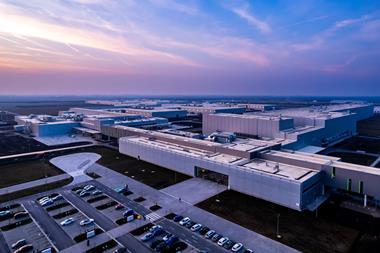
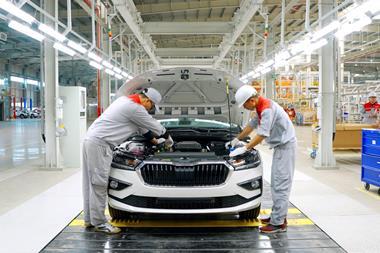
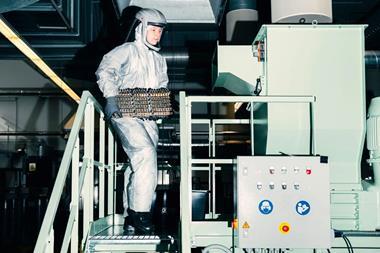


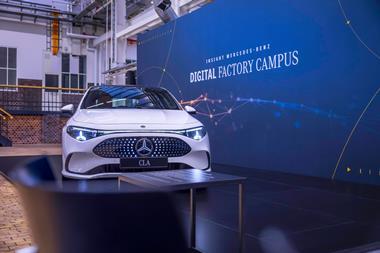



No comments yet